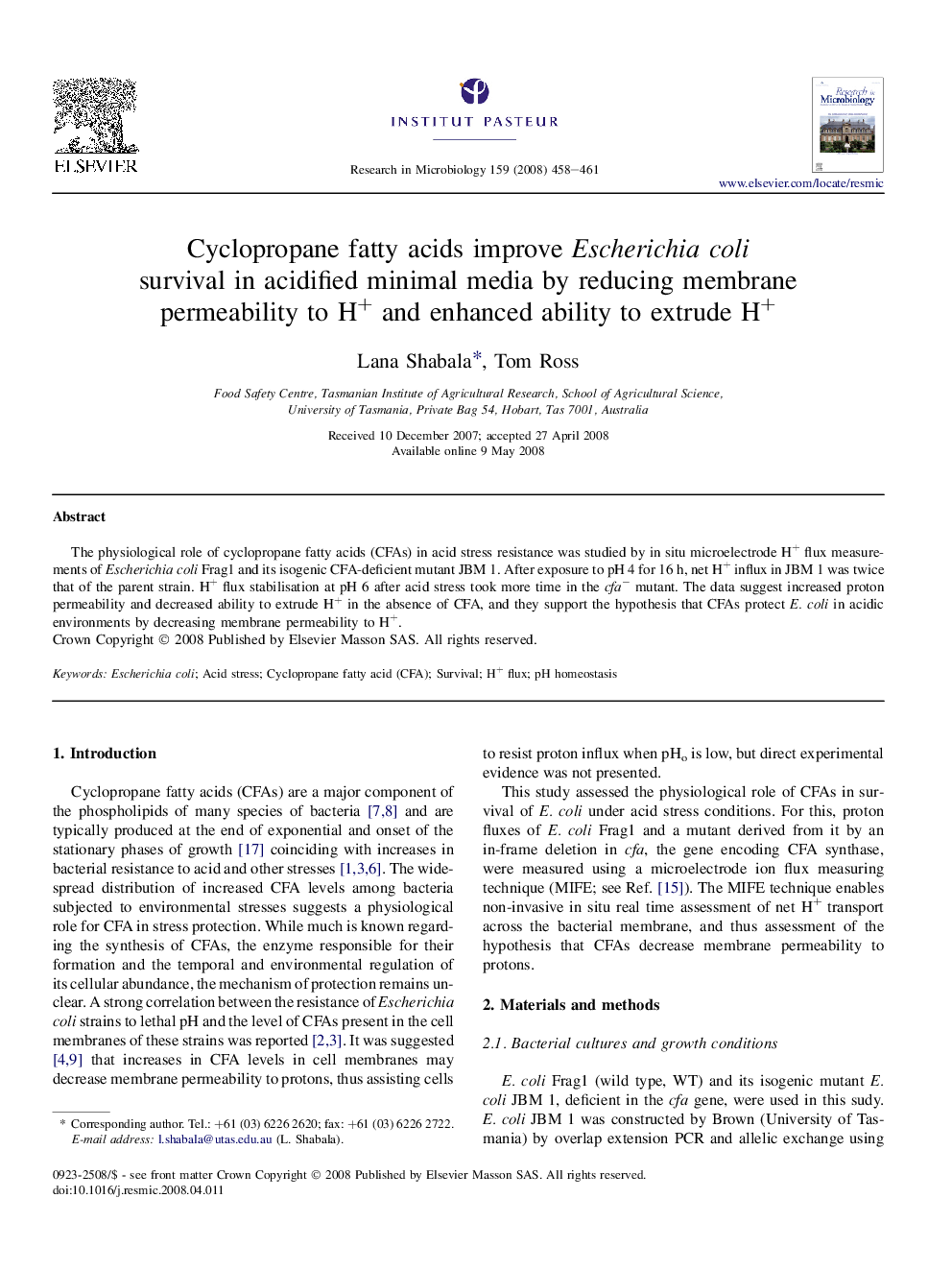| Article ID | Journal | Published Year | Pages | File Type |
|---|---|---|---|---|
| 4359343 | Research in Microbiology | 2008 | 4 Pages |
Abstract
The physiological role of cyclopropane fatty acids (CFAs) in acid stress resistance was studied by in situ microelectrode H+ flux measurements of Escherichia coli Frag1 and its isogenic CFA-deficient mutant JBM 1. After exposure to pH 4 for 16 h, net H+ influx in JBM 1 was twice that of the parent strain. H+ flux stabilisation at pH 6 after acid stress took more time in the cfa− mutant. The data suggest increased proton permeability and decreased ability to extrude H+ in the absence of CFA, and they support the hypothesis that CFAs protect E. coli in acidic environments by decreasing membrane permeability to H+.
Related Topics
Life Sciences
Immunology and Microbiology
Applied Microbiology and Biotechnology
Authors
Lana Shabala, Tom Ross,
